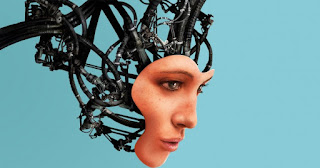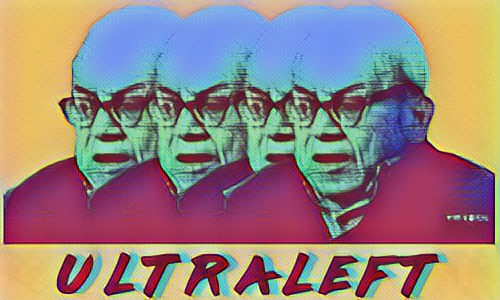Techno-Anarchism: Political Philosophy of Transhumanism
Techno-Anarchism
Techno-anarchism is any ideology based on the premise that advances in science and technology could and should bring about a stateless society. Presenting a "cybersociety" - a postpolitical, non-hierarchical society made possible by cyberware, in which the computer-literate, super-intelligent, open-minded, change-oriented, self-reliant, irreverent free-thinker is the norm.
Techno-anarchism is therefore an ideal society, in which laws, government, and social conditions are solely operating for the benefit and well-being of all its citizens, set in the near- or far-future, as advanced science and technology will allow these ideal living standards to exist; for example, post-scarcity, transformations in human nature, the avoidance or prevention of suffering and even the end of death.
In the late 20th and early 21st centuries, several ideologies and movements, such as the cyberdelic counterculture, the Californian Ideology, transhumanism, and singularitarianism, have emerged promoting a form of techno-utopia. While Robert Owen, Charles Fourier and Henri de Saint-Simon in the early 19th century inspired techno-anarchism with their visions of a future scientific and technological evolution of humanity using reason.
Post-scarcity is a theoretical economic situation in which most goods can be produced in great abundance with minimal human labor needed, so that they become available to all very cheaply or even freely. Post-scarcity does not mean that scarcity has been eliminated for all goods and services, but that all people can easily have their basic survival needs met along with some significant proportion of their desires for goods and services.
Murray Bookchin argues that post-industrial societies have the potential to be developed into post-scarcity societies, and can thus imagine "the fulfillment of the social and cultural potentialities latent in a technology of abundance". The self-administration of society is now made possible by technological advancement and, when technology is used in an ecologically sensitive manner, the revolutionary potential of society will be much changed. The notion that obstructions such as the state, social hierarchy, and vanguard political parties are necessary in the struggle for freedom of the working classes can be dispelled as a myth.
The Philosophy of Transhumanism
Techno-anarchism is the political expression of a broader philosophical movement that advocates for the transformation of the human condition by developing and making widely available sophisticated technologies to greatly enhance human intellect and physiology. This philosophy is known as transhumanism.
Transhumanist thinkers study the potential benefits and dangers of emerging technologies that could overcome fundamental human limitations as well as the ethical limitations of using such technologies. The most common transhumanist thesis is that human beings may eventually be able to transform themselves into different beings with abilities so greatly expanded from the current condition as to merit the distinction of a new species. Thus transhumanism seeks to assign new ethical relations to our technology as being part of humanity and its evolution.
The contemporary meaning of the term "transhumanism" was foreshadowed by one of the first professors of futurology, FM-2030, who taught "new concepts of the human" at The New School in the 1960s, when he began to identify people who adopt technologies, lifestyles and worldviews "transitional" to posthumanity as "transhuman". The assertion would lay the intellectual groundwork for the British philosopher Max More to begin articulating the principles of transhumanism as a futurist philosophy in 1990, and organizing in California an intelligentsia that has since grown into the worldwide transhumanist movement.
The Up Wing’s New Humanity
Transhumanism is the rendering of the Up Wing dimension of the political imaginary. Central to the philosophy of transhumanism is the question of what will the future of humanity look like. In contest are the parameters of the locus of intrinsic value bestowed upon beings we share a common ethical care. Transhumanism seeks to humanize technology. It is technology created by the ingenuity of the human mind that sets humanity apart from the other species. By way of enhancement of the human condition through technological development, evolution is advanced for the species. Our technology effectively makes us human and thus we should consider it in common ethical terms.



Comments
Post a Comment